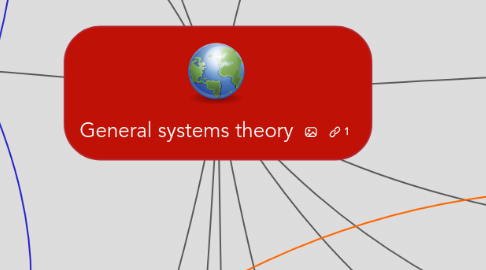General systems theory
Eduardo Beltrameにより


1. Complexity theory
1.1. Chaos
1.2. Dynamic Systems
1.3. Cybernetics
2. Mathematics
2.1. Calculus
2.2. Linear Algebra
2.3. Set Theory
2.3.1. Cantor
2.4. Analysis
2.5. Measure
2.5.1. Statistics
2.6. Topology
2.7. Information Theory
3. Physics
3.1. Quantum Mechanics
3.2. Electromagnetism
3.3. Statistical Mechanics
3.3.1. Thermodynamics
3.4. Classical Mechanics
3.5. Astronomy
3.6. Relativity
4. Biology
4.1. Genetics
4.1.1. Classical
4.1.2. Evolutive
4.1.3. Molecular
4.2. Cell
4.3. Biochemistry
4.4. Molecular
4.5. Evolutionary
5. Chemistry
5.1. Quantum
5.2. Organic
5.3. Inorganic
5.4. Analytical
6. Singularity
6.1. Greater than human intelligence
6.2. Transhumanism
6.3. Emotion and feeling control
6.4. Automatize all human tasks
6.5. The end.
7. Artificial Intelligence
7.1. Control systems
7.2. Neural networks
8. Neuroscience
8.1. Brain machine interface
8.2. Learning and memory
8.3. Neurochemistry and signalling
8.4. Emotions and feelings
8.5. Consciuousness
9. Electrical & Electronic engineering
9.1. Computer science
9.1.1. Programming
9.1.1.1. C
9.2. Analog
9.2.1. Power electronics
9.2.2. AMPOPS
9.2.3. IC's
9.3. Digital
9.3.1. Microcontrollers
9.3.2. Signal Processing
9.3.3. Boolean logics
10. Philosophy
10.1. Epistemiology
10.2. Ethics & Moral
10.3. Logics
10.4. Metaphysics
11. Literature & Art
11.1. Important books
11.1.1. 1984
11.1.2. Brave New World
11.1.3. Isaac Asimov
